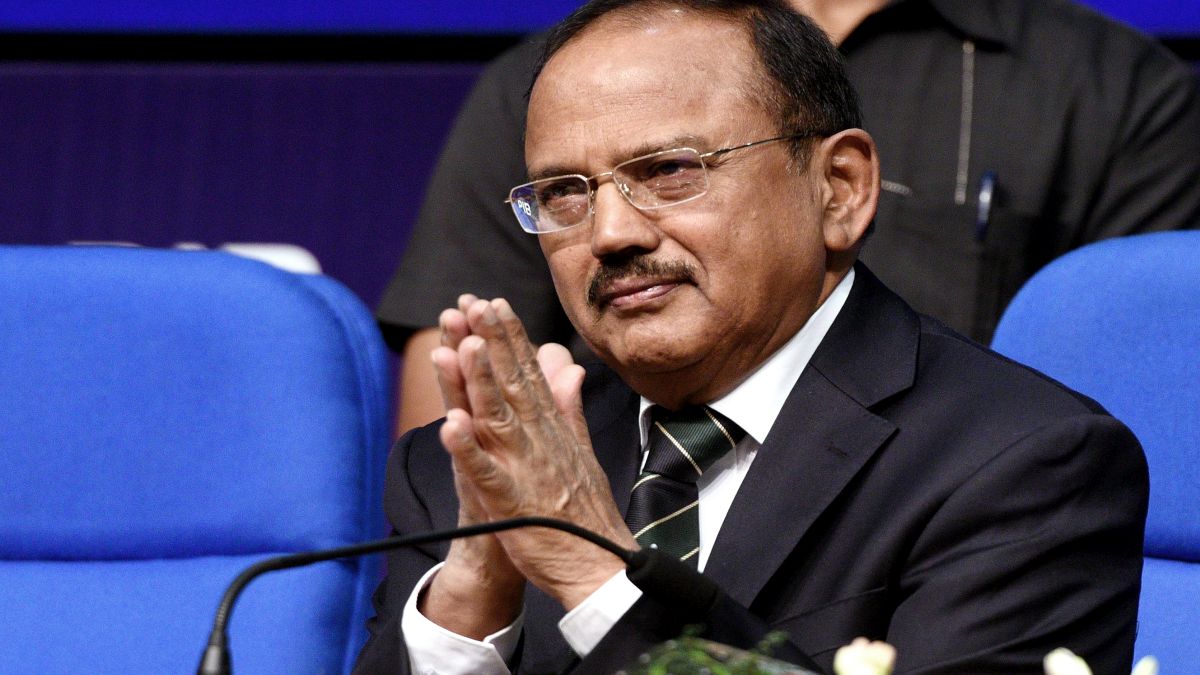)
The United States Congress has advanced a bipartisan mandate requiring the public disclosure of all declassified federal materials related to the criminal investigation of the late financier Jeffrey Epstein.
The intense motion in both Houses has produced the clearest timeline yet for when the long-sought documents could reach the public domain.
But the question is whether newly opened inquiries, sensitive victim material and internal Justice Department objections could slow the process.
The congressional action follows years of litigation and public speculation over Epstein’s relationships with prominent individuals and the circumstances of his death in federal custody in 2019.
With US President Donald Trump now saying he will sign the bill after months of resisting legislative pressure, the country is on the brink of an unprecedented release of records that span more than a decade of federal investigations in Florida and New York.
There was an emotional turnout at the U.S. Capitol alongside the vote, as about two dozen survivors attended the proceedings and watched the final tally from the public gallery.
Moments earlier, many of them were standing outside the building near bipartisan lawmakers urging Congress to act. He had his childhood photos with him – images that represented the age he was when he said he first met Epstein.
One of the survivors, Jenna-Lisa Jones, delivered a message directly aimed at the US President.
“Please stop making this political, this is not about you, President Trump,” she said.
“I voted for you, but your behavior on this issue has caused national embarrassment.”
How the Epstein scandal has affected Trump
The Epstein controversy remains a rare political weakness for Trump, even among his loyal supporters.
As he described it, Trump socialized with Epstein in the 1990s and early 2000s and had a falling out. But investigation into his past connections continues.
During an Oval Office appearance with Saudi Crown Prince Mohammed bin Salman, Trump became visibly irritated when a reporter asked about the Epstein files.
He reacted sharply, calling the journalist a “terrible person” and saying the news network the reporter worked for “should have its license revoked.”
Asked again about his relationship with Epstein, Trump reiterated claims he has made for years, saying, “I have nothing to do with Jeffrey Epstein… I kicked him out of my club several years ago because I thought he was a sick pervert.”
He has also referred to the ongoing focus on Epstein as a “Democratic fraud”, while several prominent Republicans in Congress are aggressively pushing for the release.
Public dissatisfaction with Trump’s handling of the issue has been recorded in polling. A Reuters/Ipsos poll released the day before the House vote found that his approval rating on the Epstein issue had fallen to its lowest point of the year, with only one in five Americans expressing support for his approach.
Among Republicans, the figure was 44 percent, reflecting a rare gap between Trump and his base.
How the Epstein saga has exposed rifts within the GOP
Internal friction within the GOP became even more visible during the legislative process.
On other issues, one of Trump’s most vocal defenders, Representative Marjorie Taylor Greene, revealed that the US President had pressured her to withdraw her support for the resolution. He said Trump also called him a “traitor” after his refusal.
Standing alongside survivors and lawmakers from both parties, Green offered her own definition of loyalty. “A traitor is an American who serves foreign countries and himself. A patriot is an American who serves the United States, and Americans like women standing behind me.”
Representative Thomas Massie of Kentucky emerged as the leading Republican to push the proposal.
On the House floor, he accused the U.S. Justice Department of “protecting pedophiles and sex traffickers” and told colleagues that accountability would be clearer “when men, rich men, are in handcuffs, being led to jail.”
Democratic Representative Ro Khanna joined Massey and Greene at the Capitol in support of the bill, reflecting the unusual cross-party cooperation resulting from this effort.
What will US officials release
Once signed by Trump, the legislation obliges the Attorney General of the United States to make public all declassified files, records, communications, and investigative materials:
-
Justice Department
-
Federal Bureau of Investigation
-
US Attorney’s Office involved in Florida and New York cases
The timeline is strict: All records must be released within 30 days of the bill becoming law.
Overall, the materials reflect more than a decade of federal investigative work, including:
-
Two major federal cases
-
witness interview
-
internal communications
-
Documents obtained from Epstein’s residences
-
content from digital devices
-
Bank and financial records
The releases, which preceded the congressional investigation, totaled tens of thousands of pages. The upcoming installment is expected to be even bigger.
What might be in the Epstein files?
Legal experts say the new revelations could shed light on Epstein’s extensive network of wealthy and influential acquaintances, many of whom interacted with him in business or social settings during the years when the allegations against him were mounting.
Columbia Law School professor Daniel Richman said a preview published by the House Oversight Committee – of emails and texts involving Epstein – suggests that the upcoming documents “could reveal disturbingly close ties” between Epstein and well-known public figures.
However, speaking to CBS NewsRichman also reported that he believed federal prosecutors would already have pursued any actionable criminal leads with “zealousness.”
He cautioned observers not to expect revelations to immediately lead to new allegations.
Meanwhile, reputation and privacy concerns are intensifying. Former US Treasury Secretary Lawrence Summers recently announced he was “withdrawing from public commitments” as attention focused on emails showing he sought personal advice from Epstein.
Summers said he was “deeply ashamed of his actions and recognizes the pain he caused.” The correspondence does not indicate any illegal conduct on his part.
Epstein’s former lawyer David Schoen warned that the upcoming revelations could unfairly harm people who had social or professional contact with Epstein without being involved in wrongdoing.
“My fear is that people’s reputations will be tarnished now that their names are coming out even though they have done nothing wrong,” he said.
Records may include:
But significant parts of the collection contain highly sensitive materials that complicate public release.
What cannot be released in the Epstein files
An unsigned memo from July by the Justice Department and the FBI outlined the agencies’ concerns.
The review found that the files contained graphic videos and images of victims who were minors or appeared to be minors, as well as more than ten thousand downloaded images and videos that contained child sexual abuse or other illicit material.
The agencies argued that despite efforts to release as much information as possible first, “no further disclosure would be appropriate or necessary.”
His review also directly addressed a persistent public rumor: the existence of a secret “subscriber list”.
The memo concluded, “This systematic review did not reveal any objectionable ‘client lists’.” “We did not uncover evidence that would predispose to an investigation against unidentified third parties.”
Richman suggested skepticism about the US Justice Department’s reasoning, and expressed concern that selective withholding could benefit Trump’s allies and harm his critics.
How can the release deadline be extended if new questions arise?
US Attorney General Pam Bondi announced last week that she had requested US Attorney Jay Clayton to launch a new investigation – which was launched within hours of Trump calling for an investigation into several prominent Democrats and financial institutions.
The development has raised concerns among lawmakers and lawyers representing survivors.
Whether the new investigation will delay or block any part of the release is unclear. Under the law, files related to an ongoing investigation can be exempted.
The 30-day countdown begins as soon as Trump signs the bill.
Within that period, unless the waiver is invoked, the U.S. Justice Department must disclose all declassified records related to Epstein’s federal cases.
But several serious questions remain:
How much will be revised?
Given the presence of minors in many files, important parts may have to be legally withheld or heavily modified.
Could the new investigation provide a legal basis for the delay?
This remains one of the central uncertainties. Federal law allows withholding if the material is part of an active case.
Will this release reshape public understanding of Epstein’s network?
Experts caution that although the files may reveal close relationships, they do not necessarily indicate new criminal conduct.
How will reputational risks be addressed?
Legal and political repercussions could continue as names appear without context in documents.
See also,
with inputs from agencies
end of article

)
)
)
)